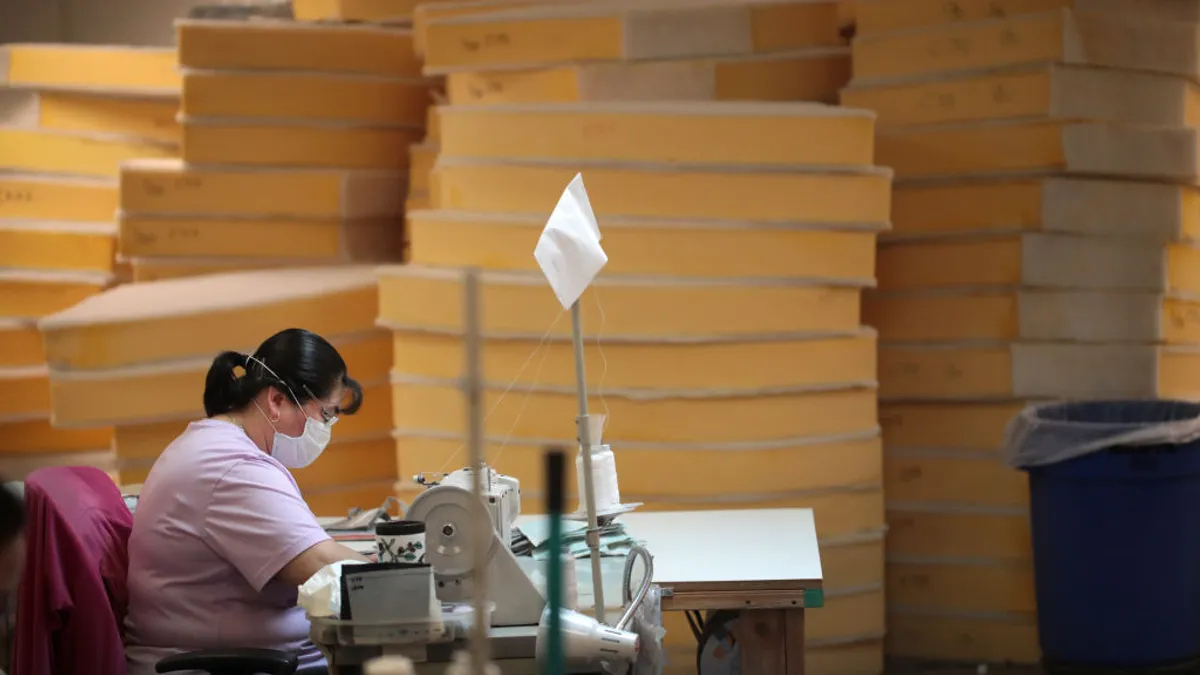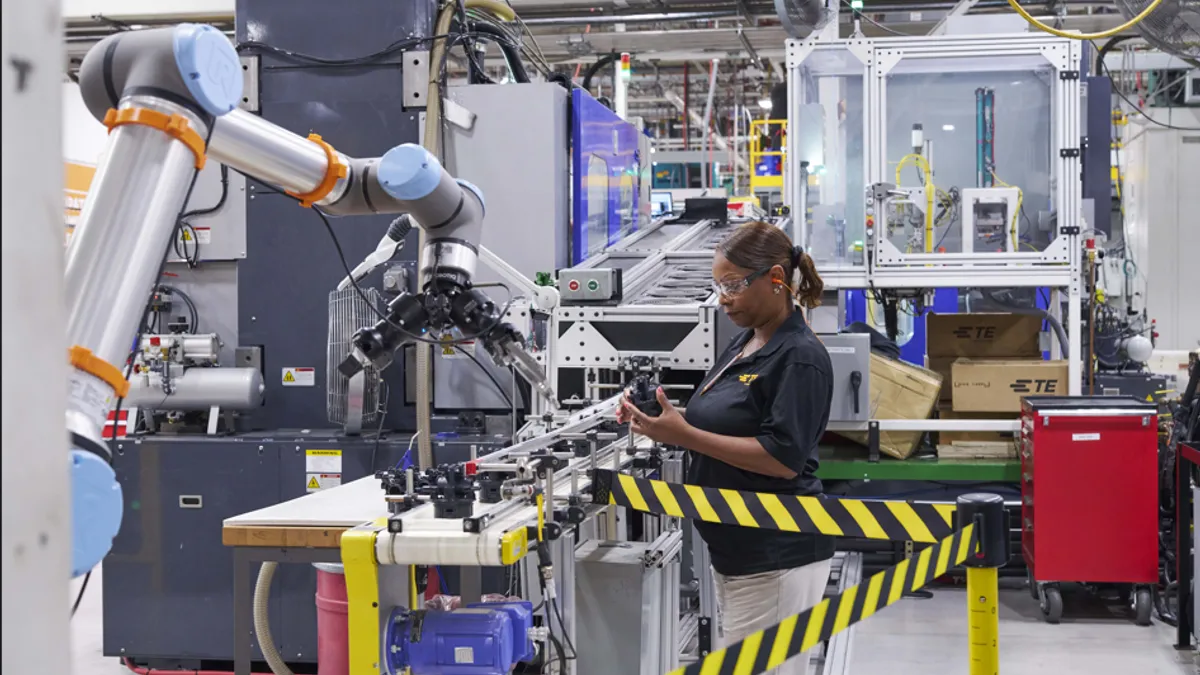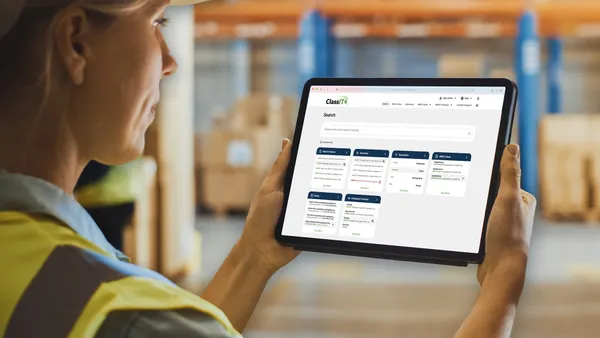Editor's Note: The following is a weekly column covering technology and regulation within the supply chain and logistics industries.
Consumers shun auto dealers, gas stations, department stores
Retail sales dipped 1% in February according to the latest Census Bureau data, due to a lack of consumer spending particularly at auto dealers, gas stations and department stores.
While the numbers aren't necessarily a cause for doomsday predictions for retail, we do know that department stores have been lagging and failing for some time now, so a dip in department store spending is not unexpected.
Infrastructure plan still lacks oomph and funds
Bloomberg reported that President Trump plans to continue campaigning his infrastructure plan this year, but Republicans and Democrats are still divided over what a final bill should look like.
Part of the problem is there's no agreed upon source of funding: the American Trucking Associations (ATA) wants a gas tax, but a Chamber of Commerce spokesperson told Supply Chain Dive many Chamber members feel reluctant to support a gas tax, because such a measure is so unpopular among consumers.
Furthermore, Trump's current plan still assumes the private sector will provide most of the funding to rebuild highways, bridges, ports, etc., causing various freight sectors to feel testy.
Steve Bowen, CEO of Maine Pointe, an end-to-end supply chain visibility services provider, said the uncertainty surrounding infrastructure funding could result in a public-private partnership between federal funds and investment funds to support infrastructure.
Investors get "very big returns" by investing in infrastructure, and to prove his point, Bowen used the example of Warren Buffet's Berkshire Hathaway acquisition of BNSF Railway in 2010, followed by additional funding — BNSF is "now one of the best well-run railroads," Bowen said, and in 2017 announced it would spend $3.4 billion on its own infrastructure.
That said, it may behoove investors to assist the various modes of freight with their infrastructure needs if the federal government isn't going to help much.
"Just look at the state of our highways: bridges are crumbling before our eyes," Bowen told Supply Chain Dive. "From a trucking standpoint, a huge re-investment into our interstate and local highway infrastructure could pay huge dividends. The second aspect I could see huge benefits from infrastructure is by going to the ports next — the ports up and down the eastern and western seaboard. The need for capacity in our ports is huge. There’s going to be a huge growth of international commerce, regardless of tariffs and all that."
In the meantime, to make the most of poor infrastructure and the pressing capacity shortages in air freight and trucking, shippers might start "aggressively going after intermodal," Bowen said.
Shippers will need to brainstorm creative solutions with their carriers and 3PLs to work around the capacity shortages, which are expected to continue for some time if the truck driver turnover rate remains so high.
"We figured out how to ship something in less than 24 hours from D.C. to Chicago via intermodal," Bowen said. "It was between the local trucking companies at each end of that and the rail companies in between, and we were able to create a triad to solve this problem."
The Reaction: Despite industry fears over a lack of direction from the federal government regarding infrastructure funding, there may be other viable options on Wall Street, which could offer a funding solution faster and more efficiently.
Is Volkswagen catching up to Tesla?
Volkswagen just announced that its fully electric, autonomous bus-like car, the Sedric, is headed to production, according to TechCrunch. Volkswagen is also planning to build at least 16 EV plants in Europe, China and the U.S. by 2025, according to The Wall Street Journal, and plans to ramp up production to 3 million EVs per year by 2025.
The Reaction: The German automaker could be the competitive specter haunting Tesla, but we still don't know how good, desirable or expensive Volkswagen's Sedric will be. Besides that, the consumer bases at Volkswagen and Tesla are quite different.
Despite Tesla's supply chain issues, the company still produces the best EVs, but because Volkswagen is an established automaker with a solid supply chain, it could catch up to Tesla fairly quickly if Tesla doesn't watch out.
In case you missed it
French retailer Carrefour launched the first-ever food blockchain in Europe, using the platform to trace fresh produce as well as live chickens in transit. Speaking of Europe, Bloomberg published a feature on how Norway's aggressive green initiatives are resulting in battery-powered ferries and boats as the country pushes to fully electrify two thirds of ocean transit by 2030.
The Chamber of Commerce also published a study revealing nearly half of Americans believe automation will eliminate jobs, not create jobs, despite industry leaders' arguments to the contrary.
Looking ahead
The European Union is pushing Trump to exempt its members from his controversial steel tariffs, according to Reuters. U.S. Trade Representative Robert Lighthizer will testify before the Senate Finance Committee regarding the tariffs on March 22.




















